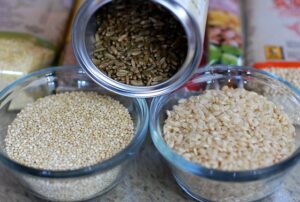Deciding to seek assistance for substance misuse or addiction is an important step toward recovery, but selecting the best rehabilitation center may be difficult. Understanding the distinctions between inpatient and outpatient therapy is critical for determining the best treatment choice. Each type of program has unique characteristics, advantages, and considerations that influence the recovery process. Alcohol & Drug Rehabs: Detox & Addiction Treatment Centers Near Me In District of Columbia are available if you are in need of assistance within the region. In this article, we’ll explore the key differences between inpatient and outpatient rehabilitation programs, helping you make an informed decision for your or your loved one’s treatment journey.
Inpatient Rehabilitation Programs
 Inpatient rehabilitation programs, often known as residential therapy, require patients to remain at the treatment center for a certain amount of time, which can range from 28 days to several months. These programs give patients a structured and controlled environment, offering round-the-clock medical care, supervision, and support. Inpatient care is often intensive, with a daily schedule of therapeutic activities, including individual and group therapy sessions, educational workshops, and recreational activities.
Inpatient rehabilitation programs, often known as residential therapy, require patients to remain at the treatment center for a certain amount of time, which can range from 28 days to several months. These programs give patients a structured and controlled environment, offering round-the-clock medical care, supervision, and support. Inpatient care is often intensive, with a daily schedule of therapeutic activities, including individual and group therapy sessions, educational workshops, and recreational activities.
The immersive nature of inpatient rehab allows patients to focus mainly on their recovery without the distractions and triggers of everyday life. The benefits of inpatient rehabilitation include continuous access to medical professionals and counselors, ensuring that patients receive immediate care for any physical or emotional issues. A controlled setting minimizes exposure to triggers and negative influences, reducing the risk of relapse. Inpatient programs often offer a holistic approach, addressing physical, psychological, and social aspects of addiction. However, inpatient treatment can be more expensive due to the comprehensive care and accommodations provided. Patients must take time off from work, school, or family responsibilities, which can be challenging for some individuals. Additionally, being away from family and friends can be difficult, although many programs incorporate family therapy sessions to maintain connections.
Outpatient Rehabilitation Programs
Outpatient rehabilitation programs give patients the option to live at home and continue their regular activities while receiving therapy at a facility. These programs vary in intensity, with options such as standard outpatient therapy, intensive outpatient programs (IOPs), and partial hospitalization programs (PHPs). Outpatient care offers flexibility, enabling patients to pick the level of intensity that suits their needs. Treatment typically includes individual counseling, group therapy, and educational sessions. Some outpatient programs also provide medication-assisted treatment (MAT) and access to support groups.
Outpatient rehabilitation offers flexibility, as patients can continue working, attending school, and fulfilling family obligations while receiving treatment. Outpatient programs are often more affordable than inpatient care, making them available to a wider range of people. Patients can also immediately apply coping strategies and skills learned in therapy to real-world situations.
Nonetheless, patients remain in their usual environment, which may include exposure to triggers and high-risk situations. Outpatient care may not provide the same level of immediate support and supervision as inpatient programs. Success in outpatient programs often relies on the patient’s motivation and commitment to attending sessions and following treatment recommendations.
Choosing the Right Program
A complete examination by a healthcare expert should precede the choice to receive inpatient or outpatient treatment. Factors to examine include the degree of addiction, co-occurring mental health conditions, past treatment history, and personal circumstances. Inpatient care is ideal for individuals with severe addiction, multiple relapses, …



 Whole grains, such as brown rice and quinoa, provide sustained energy and help stabilize blood sugar levels. They also contain important nutrients such as fiber, B vitamins, and minerals. If you are used to processed white breads and pastas, it may take some time for your body to adjust to whole grains. Start by incorporating small amounts into your diet and gradually increase over time. This way, your body will have time to adjust, and you can avoid any uncomfortable digestive issues.
Whole grains, such as brown rice and quinoa, provide sustained energy and help stabilize blood sugar levels. They also contain important nutrients such as fiber, B vitamins, and minerals. If you are used to processed white breads and pastas, it may take some time for your body to adjust to whole grains. Start by incorporating small amounts into your diet and gradually increase over time. This way, your body will have time to adjust, and you can avoid any uncomfortable digestive issues.
 Fruits and vegetables provide important vitamins, minerals, fiber, and antioxidants. They also contain water, which can help with hydration and detoxification. Aim for various colorful fruits and vegetables to get a wide range of nutrients. If you like eating salads, try adding fruits such as strawberries and blueberries for added flavor. You can also add vegetables to sandwiches or make a stir fry with a mix of both.
Fruits and vegetables provide important vitamins, minerals, fiber, and antioxidants. They also contain water, which can help with hydration and detoxification. Aim for various colorful fruits and vegetables to get a wide range of nutrients. If you like eating salads, try adding fruits such as strawberries and blueberries for added flavor. You can also add vegetables to sandwiches or make a stir fry with a mix of both.